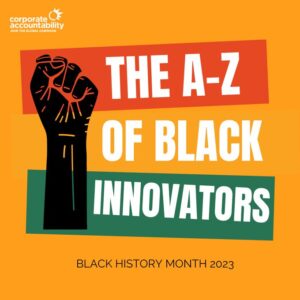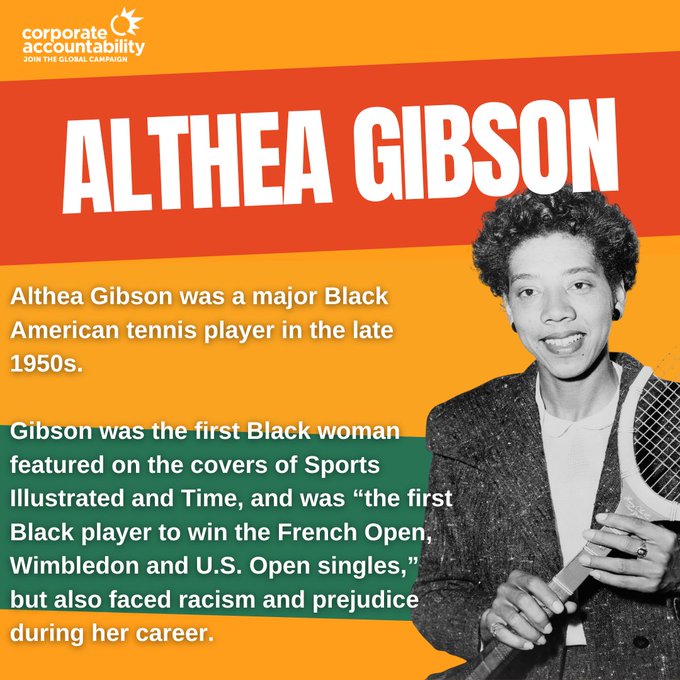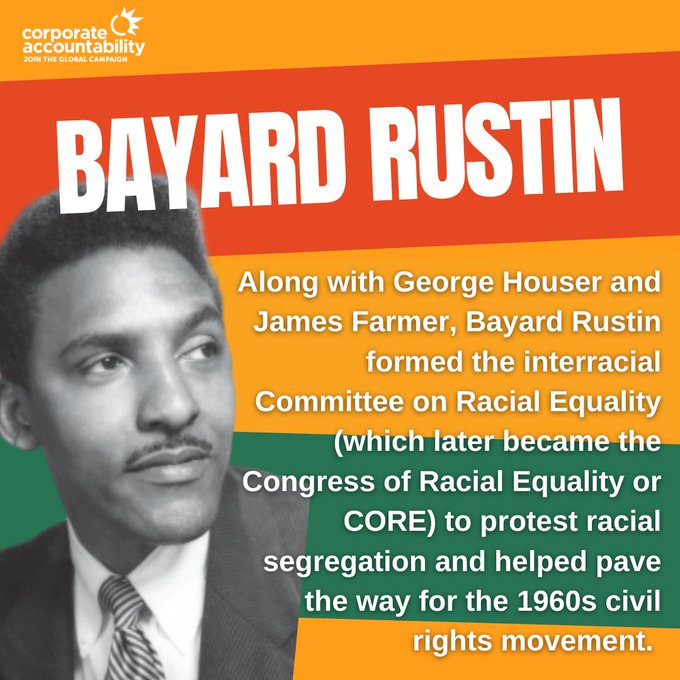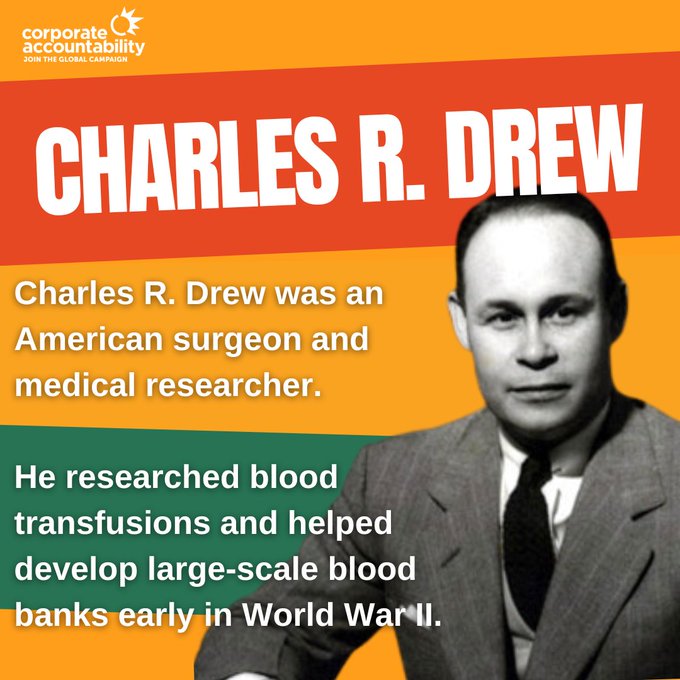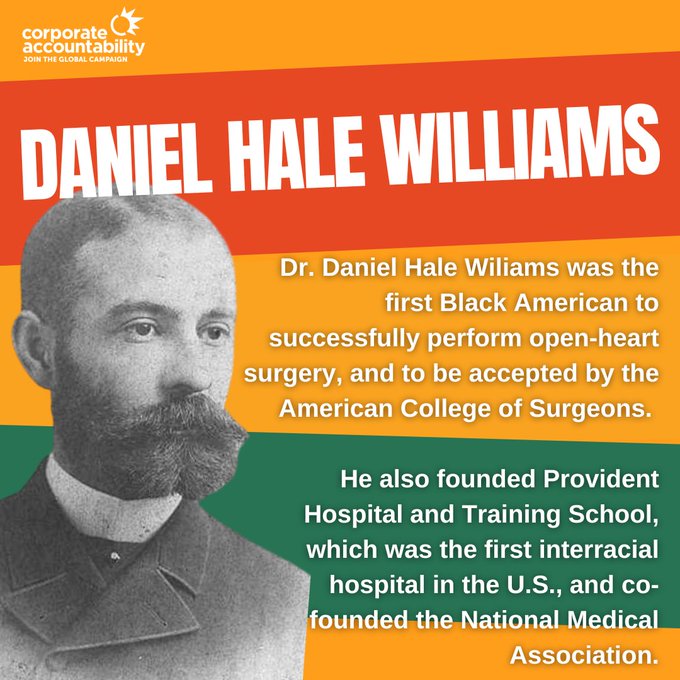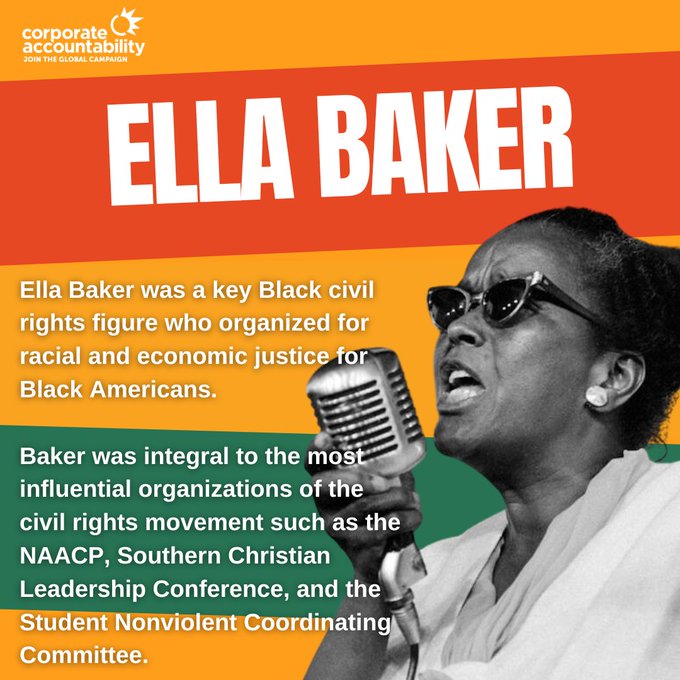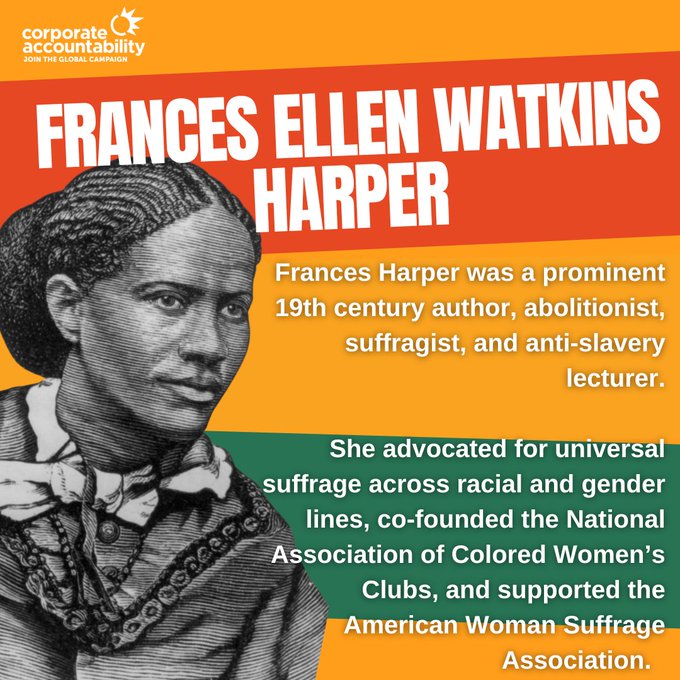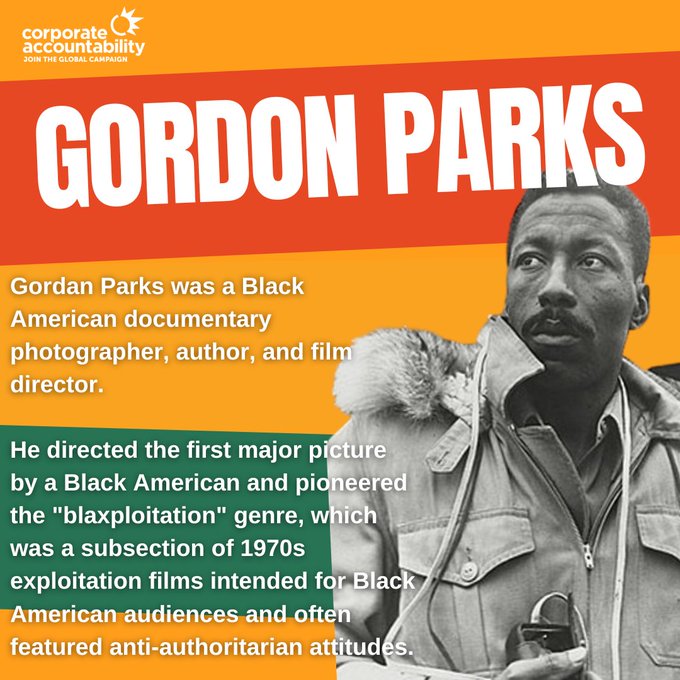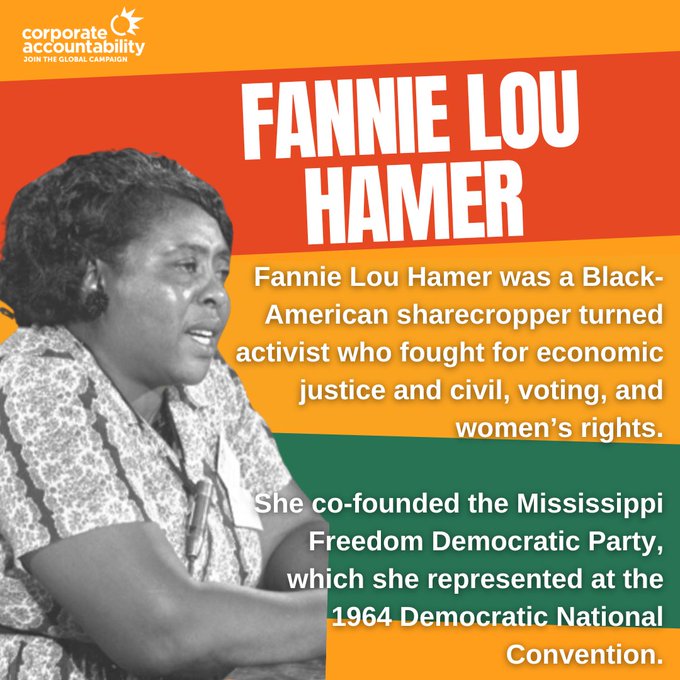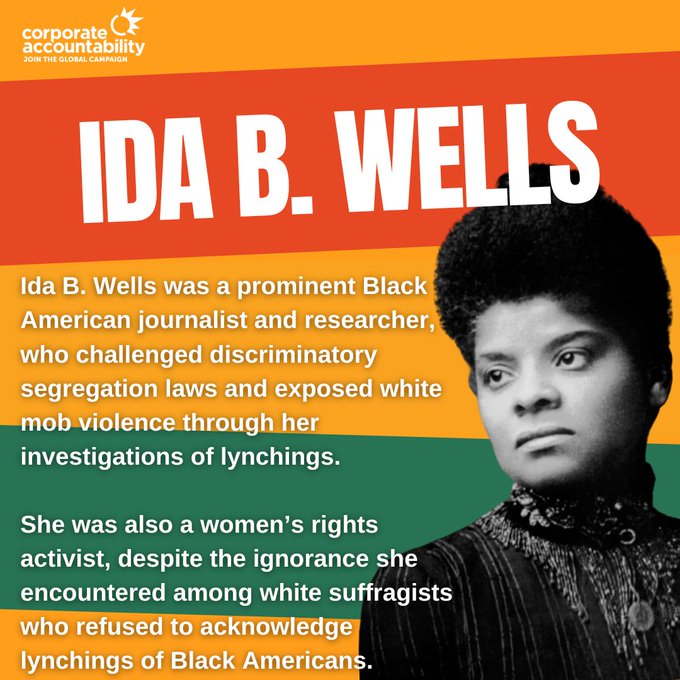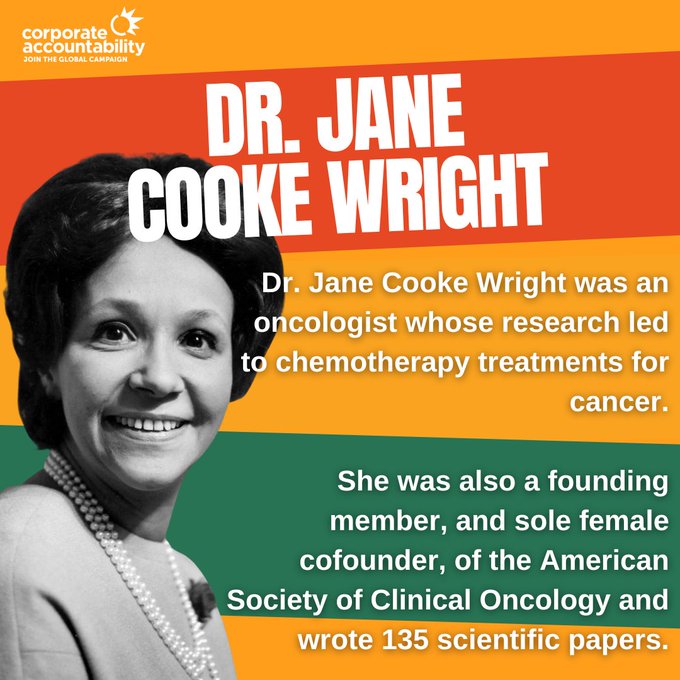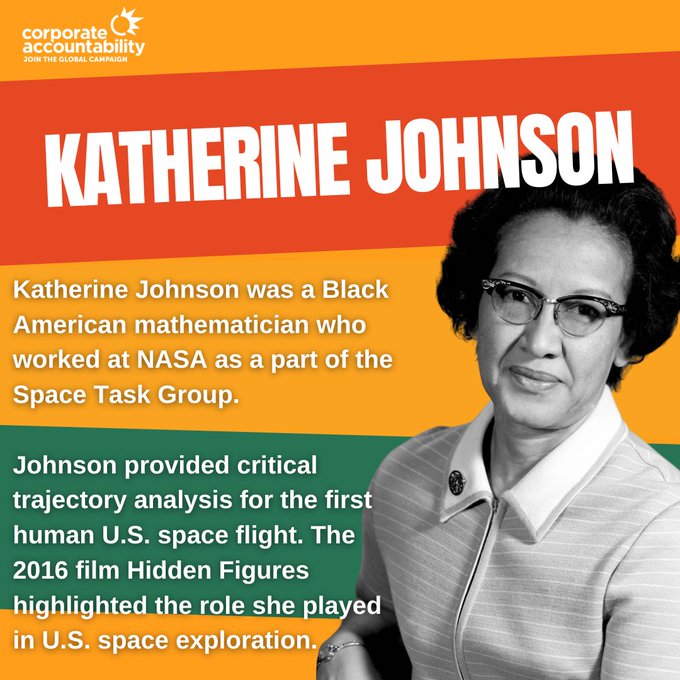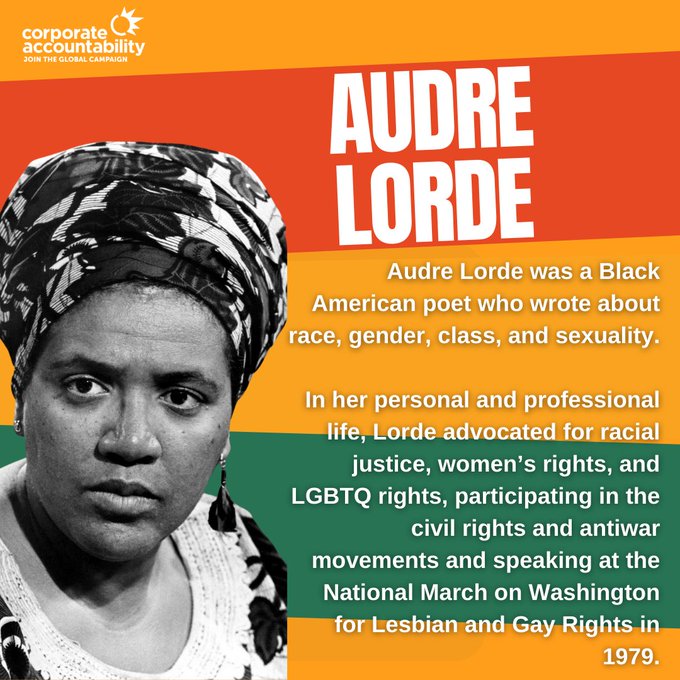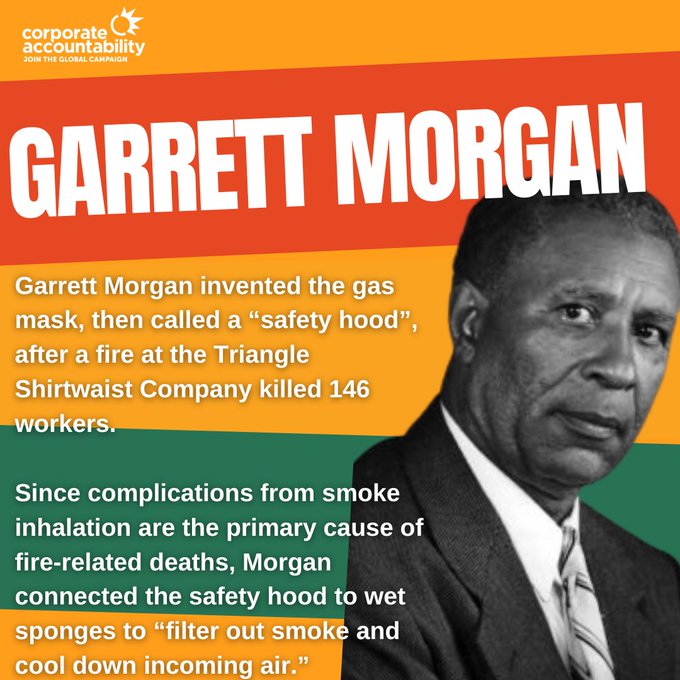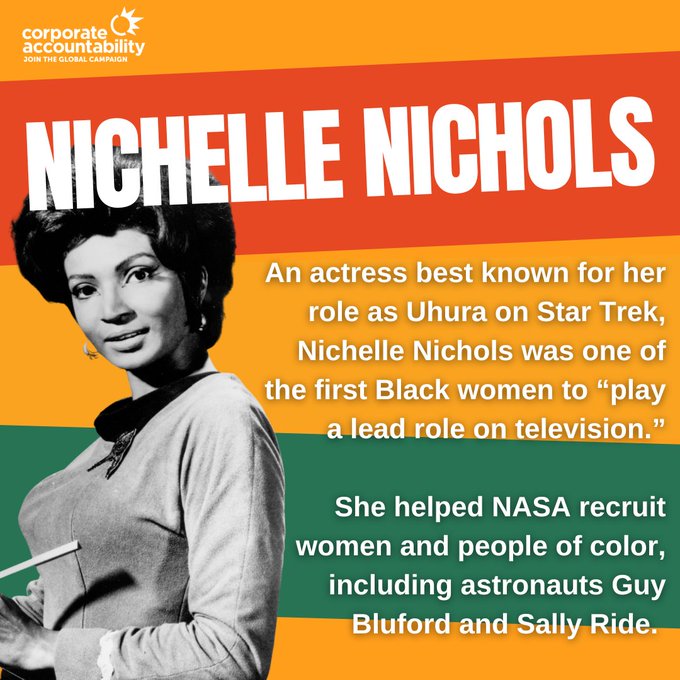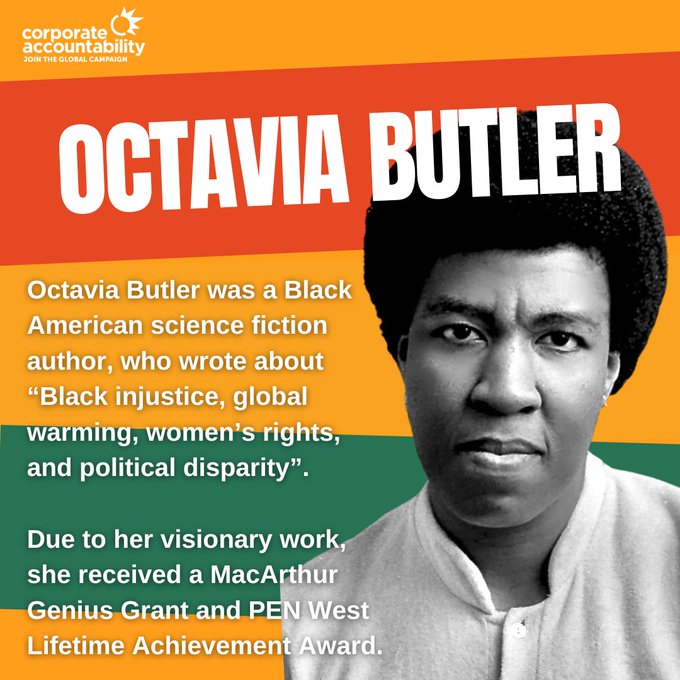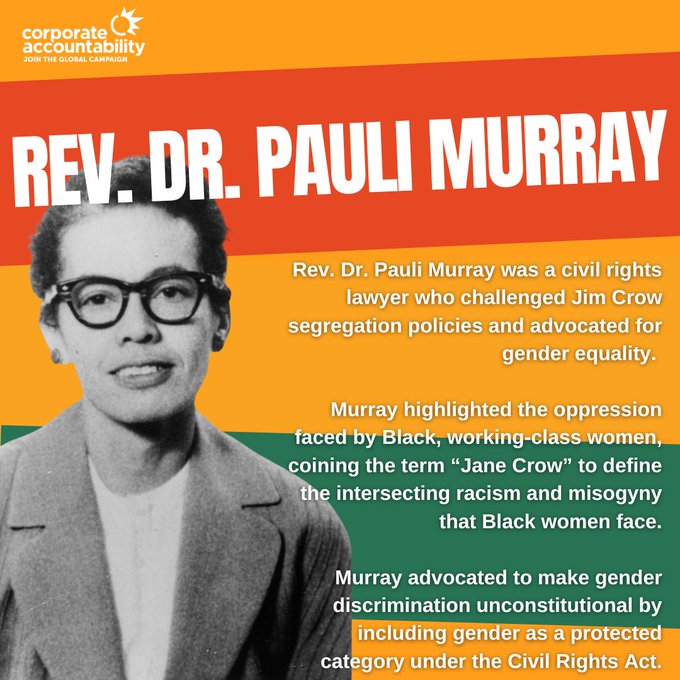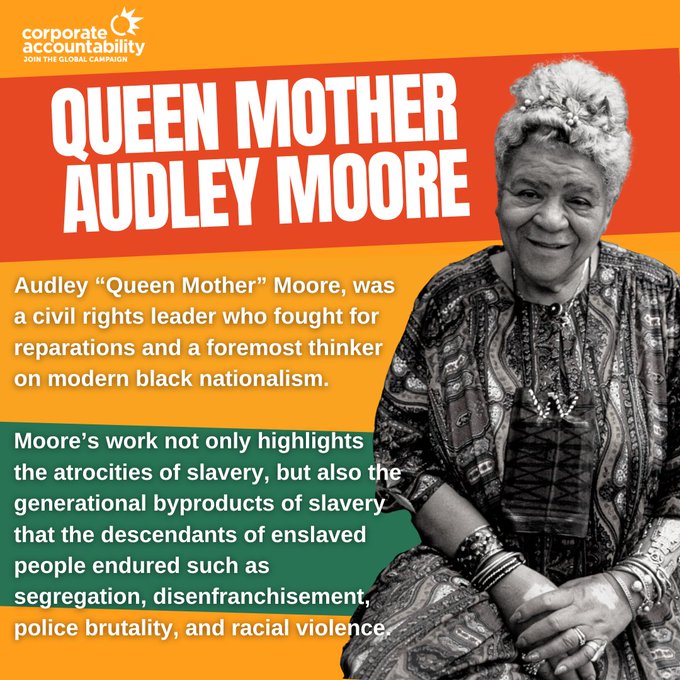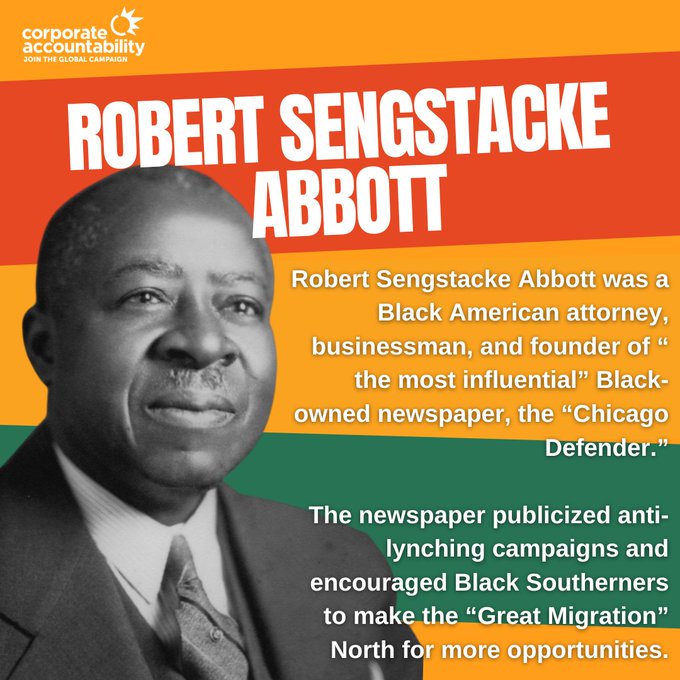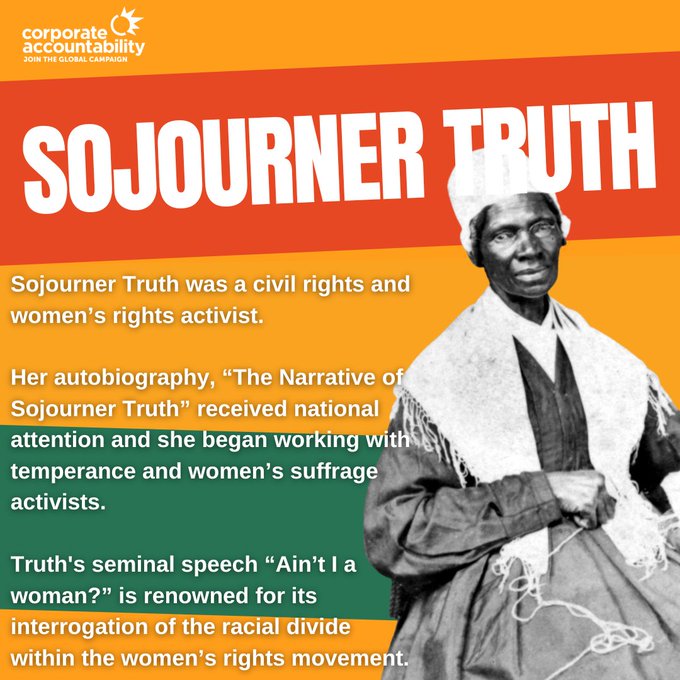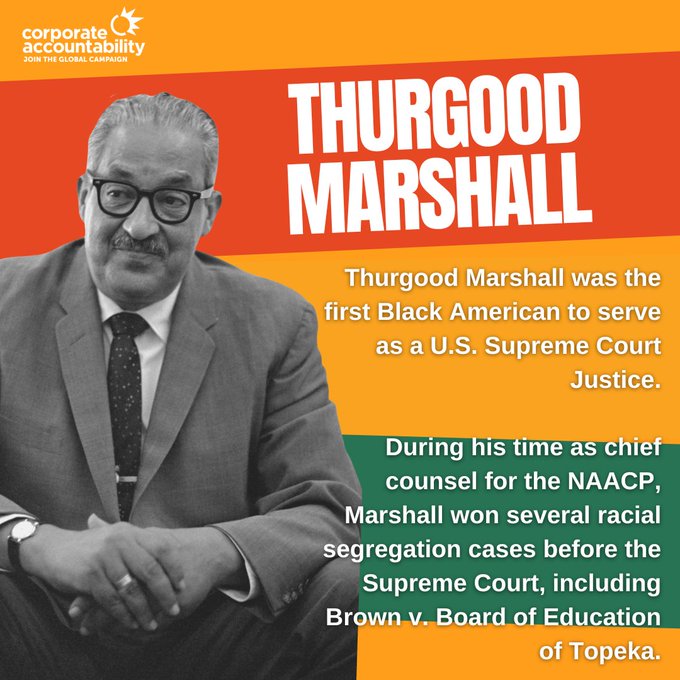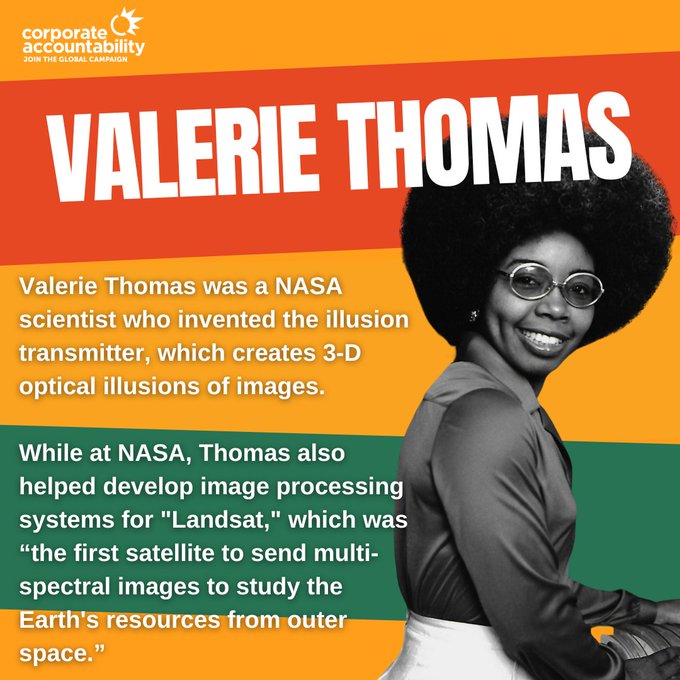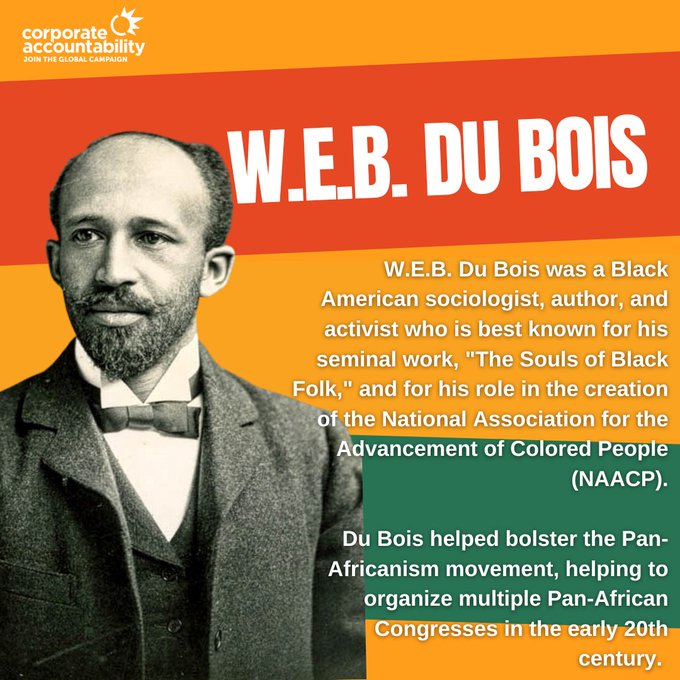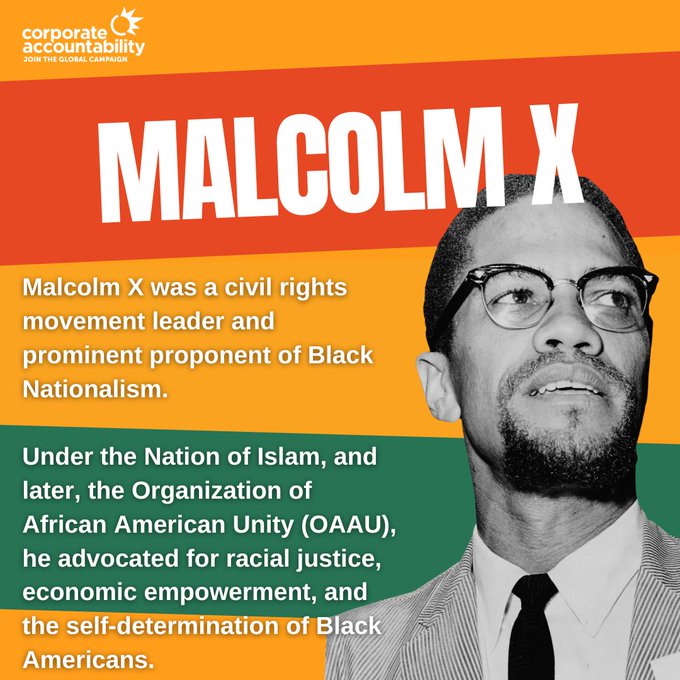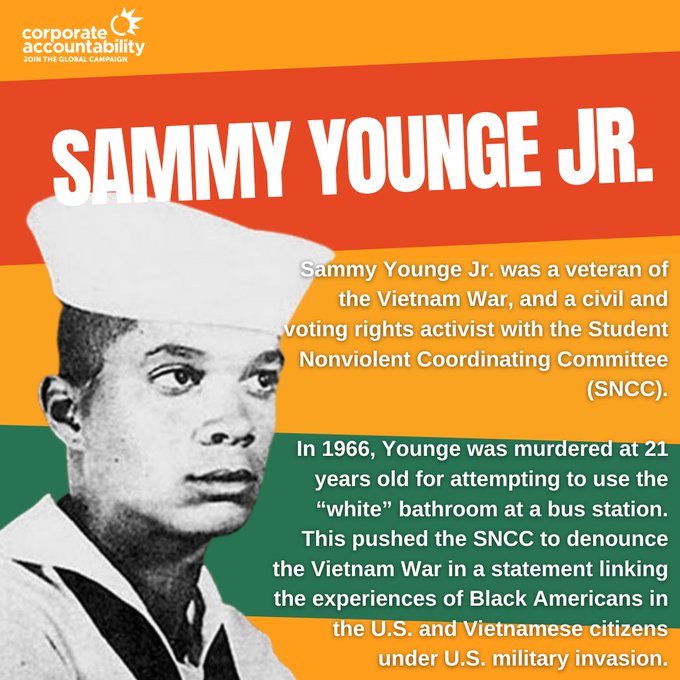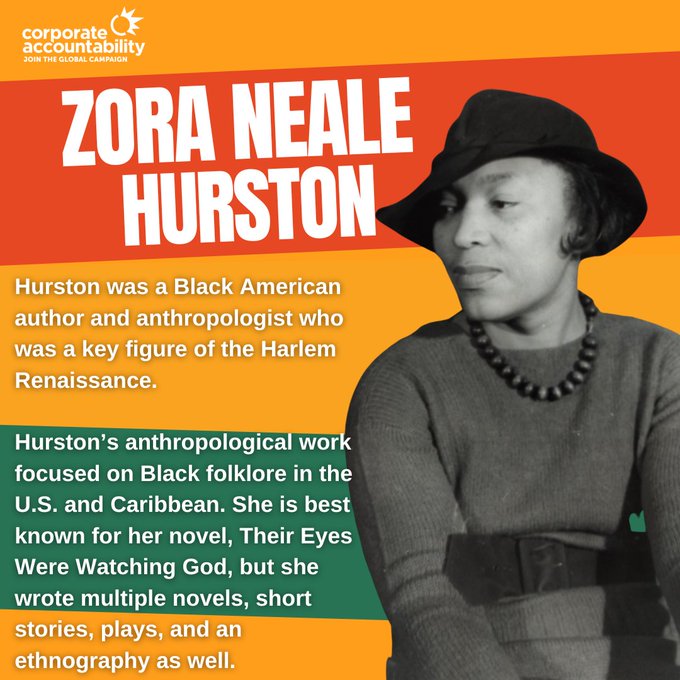Happy Black History Month! This February, Corporate Accountability’s Black Collective will commemorate Black activists, inventors, and other figures who made significant contributions to American history. Read on to learn about the A-Z of Black Innovators!
- We begin our month-long celebration with Althea Gibson, the first Black American athlete to “cross the color barrier in tennis when she competed in the 1950s at what is now known as the U.S. Open.” Read more.
- Civil rights organizer, activist, and close advisor of Dr. Martin Luther King Jr. during the Civil Rights Movement era who served as the coordinator of the 1963 March on Washington. Read more
- Surgeon and medical researcher who “organized America’s first large-scale blood bank and trained a generation of black physicians at Howard University.” Read more.
- Dr. Daniel Hale Williams was the first Black American to successfully perform open-heart surgery, and to be accepted by the American College of Surgeons. Read more.
- Ella Baker was a key figure of the civil rights movement. She played an influential role in some of the most influential organizations, and mentored many prominent activists and organizers of the time. Read more.
- A prominent 19th century author, abolitionist, and suffragist, Harper’s poetry was featured in anti-slavery papers such as The Liberator and Frederick Douglass’ Paper. Read more.
- Legendary artist and the first African American staff photographer at Life. Parks extensively documented American life and culture, “covering subjects from racism and poverty to fashion and entertainment.” Read more.
- Fannie Lou Hamer was one of the most important figures of the civil and voting rights movement, leading voter registration drives among Black Americans all across the segregated South. Read more.
- A journalist and activist who investigated and documented lynchings in the United States. She faced retaliation from white mobs for her reporting on lynchings and was forced to flee Memphis as a result. Read more.
- One of the first African American graduates from Harvard Medical School, Dr. Wright’s cancer research laid the foundations for today’s chemotherapy treatments. Read more.
- Katherine Johnson was a mathematician who worked for NASA who calculated and analyzed the flight paths for the U.S. space program. Read more.
- Audre Lorde was a poet and author who wrote about race, gender, class, and sexuality. She was an internationally acclaimed artist and activist, and was poet laureate of New York from 1991-1992. Read more.
- Garrett Morgan was an inventor who is credited with creating the gas mask — a device that has saved the lives of countless people. Read more.
- Nichelle Nichols was an actress best known as Uhura in the Star Trek series. The first Black woman to go to space, Mae Jemison, credited Nichols as a spark in her childhood interest in space. Read more.
- Octavia Butler was an author who who received a MacArthur “Genius” Grant and PEN West Lifetime Achievement Award for her work. Read more.
- Rev. Dr. Pauli Murray was a civil rights activist, lawyer, and gender equality advocate. Murray is also the first Black person perceived as a woman in the U.S. to become an Episcopal priest. Read more.
- A civil rights leader and a foremost thinker on modern black nationalism. Her pamphlet, “Why Reparations?”, makes the case for reparations, economic and social justice for Black Americans. Read more.
- Newspaper editor and publisher who founded the “Chicago Defender,” the most influential Black American newspaper during the early and mid-20th century, selling more than 250,000 copies weekly. Read more.
- Sojourner Truth was an abolitionist, as well as a civil rights and women’s rights activist. Read more.
- Thurgood Marshall was a civil rights lawyer and the first Black American to serve as a U.S. Supreme Court Justice — a role he held for nearly 25 years. Read more.
- Valerie Thomas was a scientist and inventor who worked with NASA. In 1980, she received a patent for her illusion transmitter, which is still used by NASA today in some of its satellite applications. Read more.
- W.E.B. Du Bois was a sociologist, historian, author, editor, and activist. He was also one of the founders of the National Association for the Advancement of Colored People (NAACP). Read more
- “We want freedom now, but we’re not going to get it saying ‘We Shall Overcome.’ We’ve got to fight to overcome.” Malcolm X was a civil rights movement leader and a prominent advocate of Black Nationalism. Read more.
- Sammy Younge Jr. was a veteran of the Vietnam War and civil rights activist. His murder in 1966 pushed the Student Nonviolent Coordinating Committee to publicly denounce the Vietnam War. Read more.
- Zora Neale Hurston was an anthropologist, an author, and a key figure of the Harlem Renaissance. Hurston dedicated her life to studying Black culture, incorporating her research into her literature. Read more.
